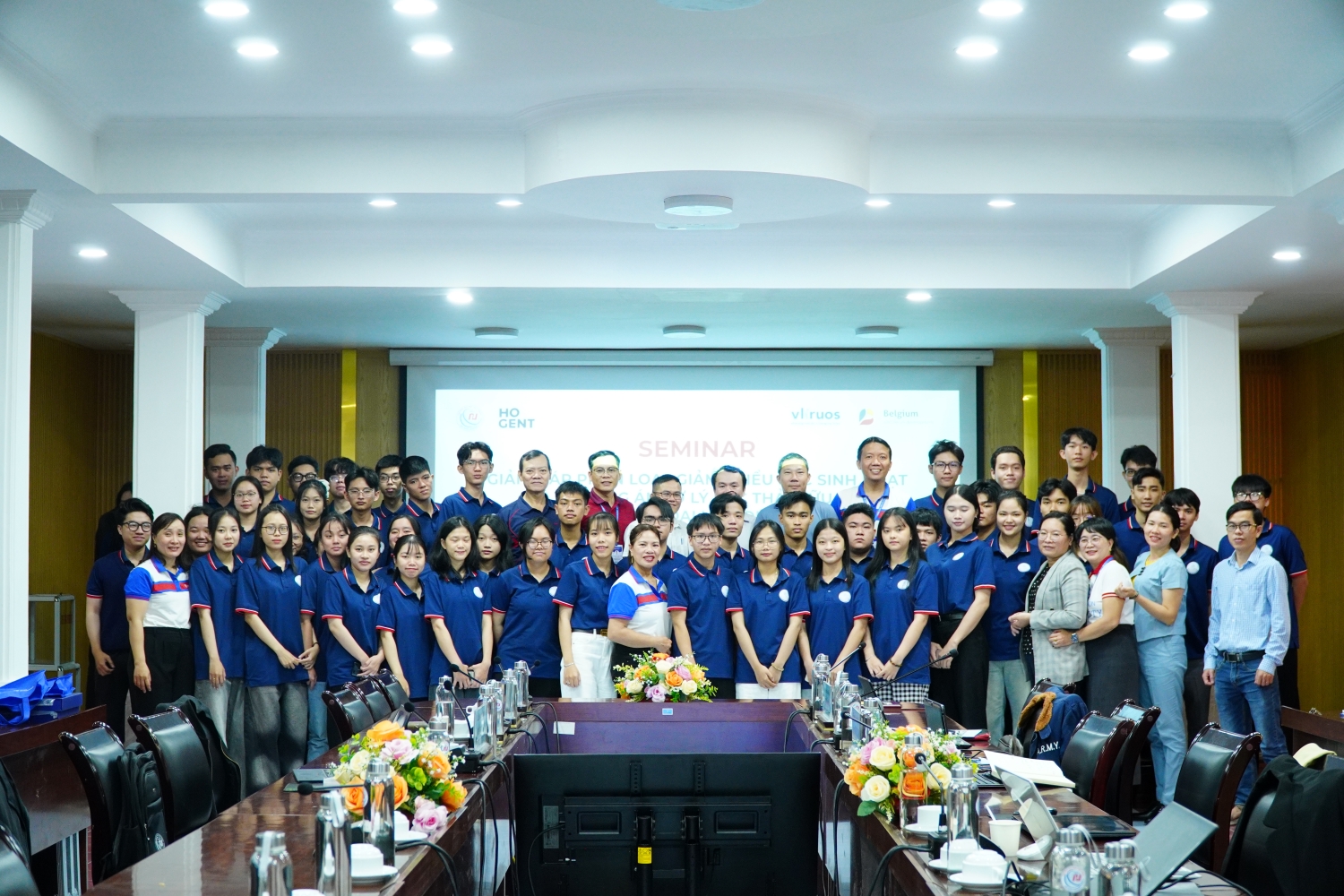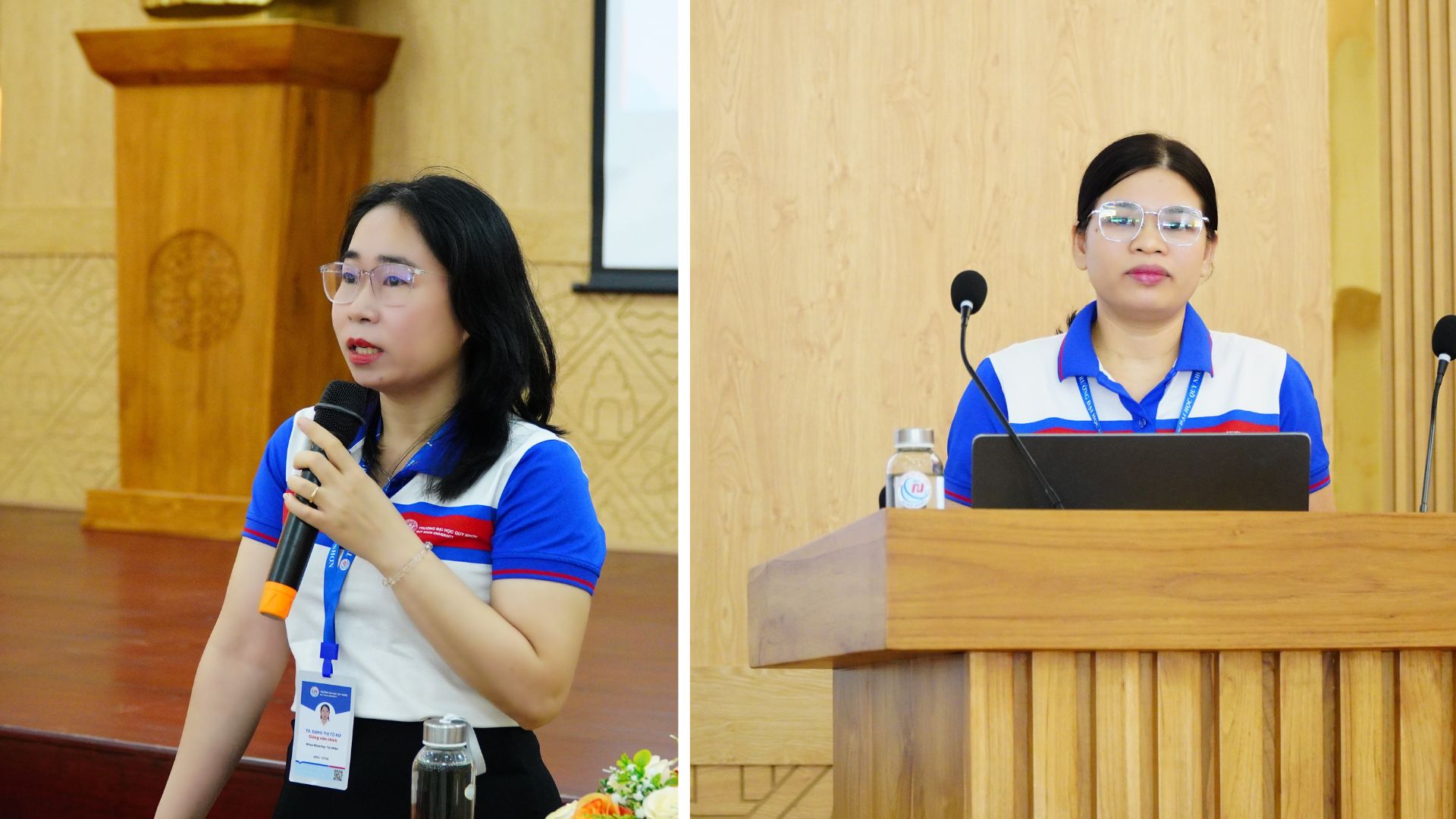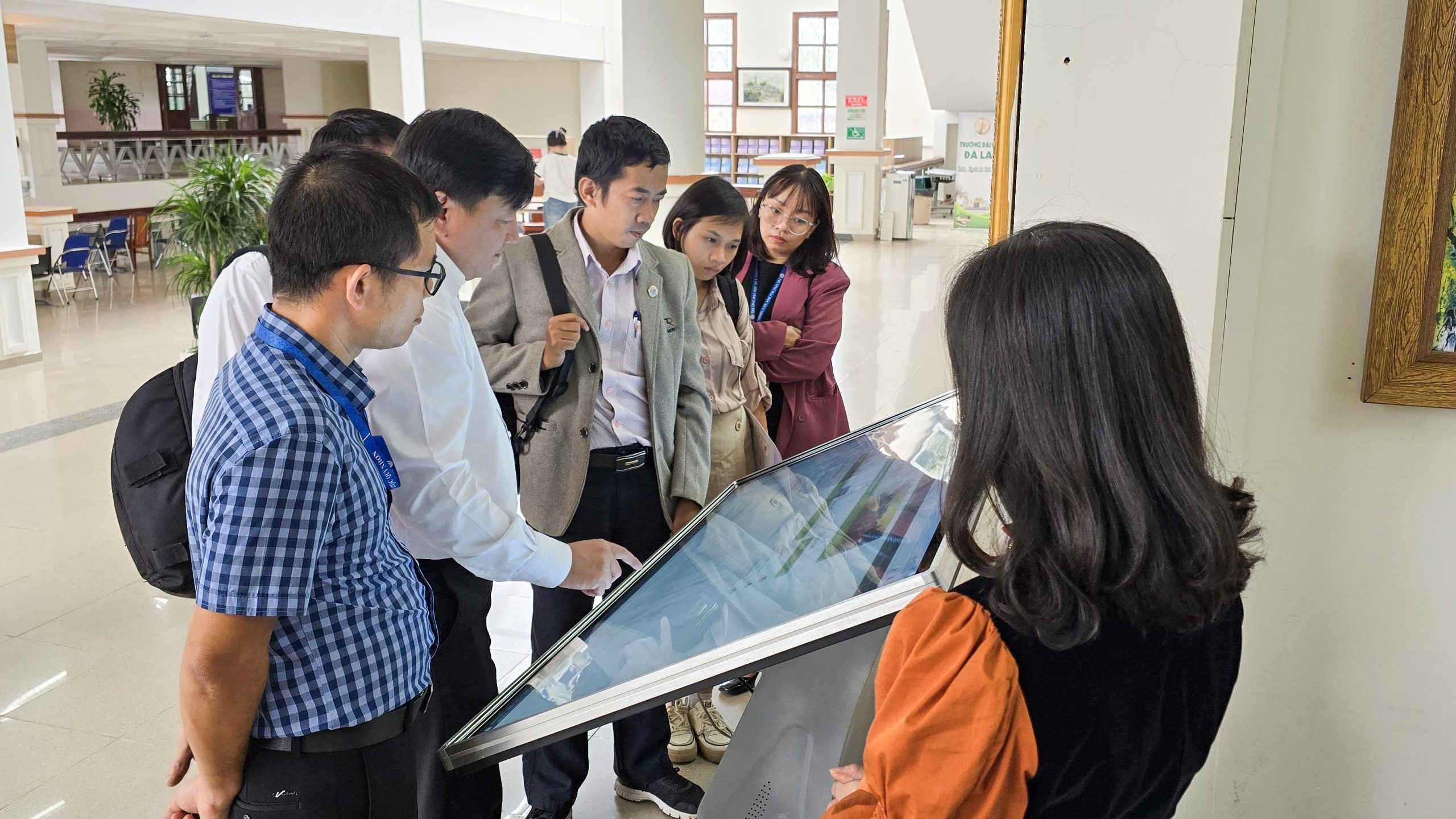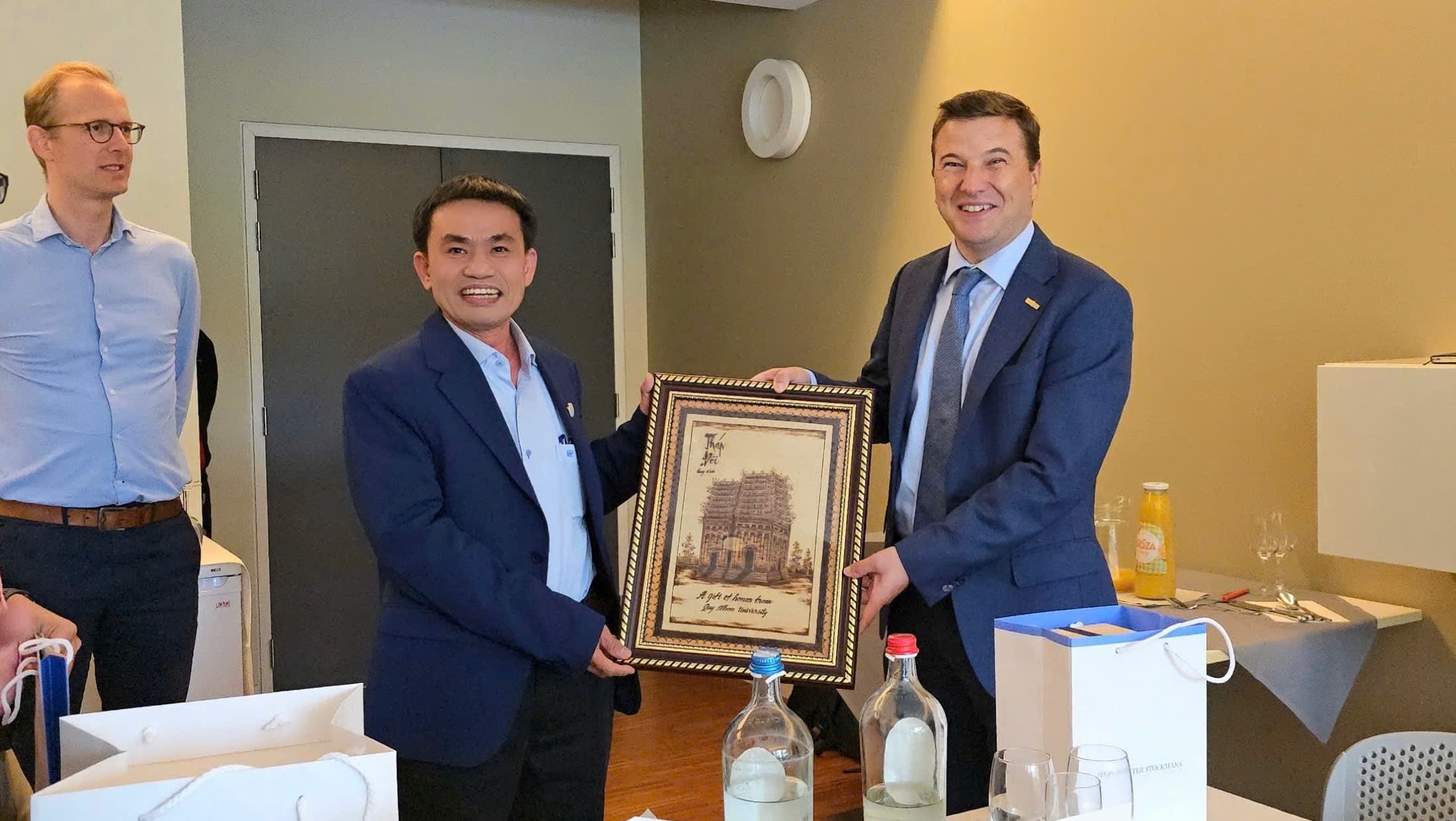The second working visit to Ninh Thuan Province on fostering cooperation with stakeholders
Ninh Thuan, known as the country’s largest jujube producer, is one of two provinces where sub-project 5 has been carried out. Therefore, as a part of the sub-project’s implementation, the QNU’s delegation led by Dr. Bui Hong Hai, together with Professor Stijn Speelman – Ghent University and Professor Steven Van Passel – University of Antwerp, paid a working visit to Ninh Thuan province between January 17th to 19th, 2023. The second visit to this province aimed to preliminarily assess the current status of jujube production and enforce the possibility of cooperation between Quy Nhon University (QNU) and sub-project 5’s stakeholders in putting this sub-project into practice.
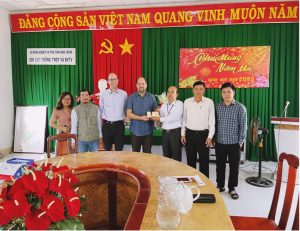 A souvenir photo of QNU delegation, Belgian professors and the representatives Ninh Thuan Sub–Department of Crop Production and Plant Protection
A souvenir photo of QNU delegation, Belgian professors and the representatives Ninh Thuan Sub–Department of Crop Production and Plant Protection
The delegation had a fruitful meeting with the representatives of Ninh Thuan Sub–Department of Crop Production and Plant Protection in the days approaching the Lunar New Year 2023 (Tet). At the meeting, the QNU’s delegation expressed joy to visit Ninh Thuan for the second time and discussed openly with local authority representatives about current supply chains of jujubes, challenges faced by local jujube farmers as well as the local government’s support for the project soon. Jujube currently becomes one of the province’s 12 specifically identified products. Many local farmers in the province have switched from other low-value crops to jujubes under the province’s plan to restructure agriculture and adapt to climate change. So far, the province has applied advanced farming techniques and implements some provincial projects to improve the fruit’s productivity and value, such as: net-covered model, Integrated Pest Management (IPM) Program, Tan My Irrigation Project… In order to increase the value of jujubes, some jujube producers have developed various products of jujubes, such as: syrups, jams, wines, and juices. However, according to Mr. Pham Dung, the head of the province’s Plant Cultivation and Protection Sub–department, one of the biggest problems local jujube farmers in Ninh Thuan province was their lack of the ability to self-finance and generate funding. Accordingly, local farmers had little or no access to formal sources, which decreased their capacity and willingness to invest in the technologies and inputs they needed to enhance their farm productivity and incomes. Furthermore, jujubes were mostly consumed in the domestic market with uncertain prices and passed through various intermediaries due to traditional trade practices. He also admitted that the local farming households still used a lot of pesticides in their cultivation, affecting the fruit quality and consumer trust. In the past, some smallholders applied VietGAP standards in the jujube production to build the trust for customers, but the price of the certified products was not much higher than others. As a result, many farmers decided to return to traditional cultivation. In 2022, the area of jujube growing in the province was more than 1.036,7ha with only 93.48 ha of VietGAP-quality jujubes. At the end of the meeting, local authority representatives expressed their goodwill that they would have the opportunity to cooperate for a long time and hoped that these challenges could be taken into consideration during the sub-project implementation.
During the time in Ninh Thuan, the delegation also visited jujube orchards and had interesting talks with some jujube farmers to better understand their vulnerable situation in their jujube cultivation. Ninh Thuan jujubes are highly susceptible to various harmful organisms, especially the mediterranean fruit fly (medfly). As said by some local jujube farmers, they used the nets during the fruiting period to protect the plant from pests, which reduced spoiled fruits compared to other jujube orchards using pesticides. Besides controlling pests, the nets also protected the fruit from strong winds and rains and the impact of strong sunshine. Ninh Thuan province also presently supports jujube producers in developing brand names for specifically identified products and “One commune – One product” (OCOP) products under the country’s OCOP program. Consequently, some products of jujube orchards are granted OCOP certification. Being certified by the OCOP program helps their products gain higher prestige and has a greater brand awareness. However, some local farmers said that they still struggled to access finance and ensure output markets, which certifications could not help them address underlying issues thoroughly.
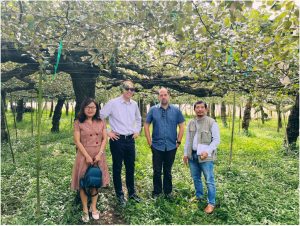
Members of sub–project 5 in a jujube orchard in Ninh Thuan Province



